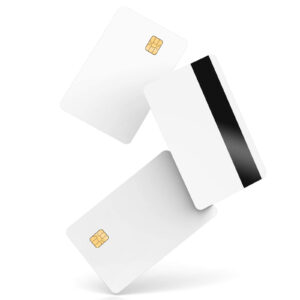Clone cards are becoming increasingly popular, yet many people do not fully understand the risks associated with them. These counterfeit credit or debit cards are created using stolen data, leading to a myriad of legal and financial consequences. In this article, we will explore what clone cards are, the dangers they pose, and why individuals should steer clear from them. The rise in digital transactions has made it easier for criminals to exploit vulnerabilities, making clone cards a pervasive threat. Understanding these risks is crucial for anyone who uses credit or debit cards.
As technology advances, so do the methods employed by criminals to create and use clone cards. This has led to a growing need for awareness and education on the subject. By delving deeper into the mechanics of clone cards, we hope to highlight the importance of safeguarding personal financial information. With the right knowledge, individuals can better protect themselves from falling victim to this sophisticated form of fraud.
What Are Clone Cards?
-
Original price was: £4,000.00.£3,999.00Current price is: £3,999.00. Select options This product has multiple variants. The options may be chosen on the product page
-
Original price was: £3,000.00.£2,999.00Current price is: £2,999.00. Select options This product has multiple variants. The options may be chosen on the product page
-
Original price was: £600.00.£599.00Current price is: £599.00. Select options This product has multiple variants. The options may be chosen on the product page
-
£700.00 – £5,000.00 Select options This product has multiple variants. The options may be chosen on the product page
-
£700.00 – £5,000.00 Select options This product has multiple variants. The options may be chosen on the product page
-
£700.00 – £5,000.00 Select options This product has multiple variants. The options may be chosen on the product page
-
£700.00 – £5,000.00 Select options This product has multiple variants. The options may be chosen on the product page
-
£700.00 – £5,000.00 Select options This product has multiple variants. The options may be chosen on the product page
Clone cards are unauthorized replicas of legitimate credit or debit cards. Criminals create these cards by stealing card information through various methods, such as skimming devices, hacking, or phishing schemes. Once they obtain the data, they transfer it onto a blank card, making it possible to use it as if it were the original. The process involves intricate techniques to ensure the clone card mimics the physical and magnetic properties of the genuine card, making detection difficult.
Skimming devices are often placed on ATMs or point-of-sale terminals to capture card details as unsuspecting customers make transactions. Phishing schemes, on the other hand, trick individuals into revealing their card information through fake emails or websites. Once in possession of the data, criminals can effortlessly create a clone card, posing a significant threat to both consumers and financial institutions.
How Do Criminals Use Clone Cards?
Criminals typically use clone cards for fraudulent activities, including unauthorized purchases or cash withdrawals. These activities can lead to substantial financial losses for the victim whose card information was stolen. Furthermore, merchants and banks may incur losses when they unknowingly process transactions made with clone cards. The ease with which clone cards can be used in physical stores and online platforms makes them particularly appealing to criminals.
The anonymity provided by clone cards is another factor that emboldens criminals. By using clone cards, they can distance themselves from the fraudulent activities, making it challenging for authorities to trace their actions. This anonymity not only facilitates the execution of fraud but also complicates the efforts of law enforcement agencies in apprehending the perpetrators.
The Dangers of Buying Clone Cards
Some individuals might consider buying clone cards as a quick way to access funds. However, engaging in such illegal activities comes with significant risks. The perceived short-term benefits are vastly outweighed by the potential repercussions.
Legal Consequences
Purchasing or using clone cards is illegal. If caught, individuals face severe legal repercussions, including fines and imprisonment. Law enforcement agencies across the globe are actively cracking down on clone card operations, making it a risky endeavor. Engaging in this illegal market not only puts one at risk of legal action but also tarnishes their reputation permanently.
Additionally, being involved with clone cards can lead to being caught in larger criminal investigations. Authorities may link buyers to organized crime rings, resulting in more severe charges. The legal system is unforgiving when it comes to financial crimes, and the penalties reflect the seriousness of these offenses.
Financial Risks

While some might think that buying a clone card could provide easy money, the reality is quite different. Clone cards are unreliable, and there is no guarantee they will work as intended. Additionally, criminals often scam buyers, taking their money without delivering a functioning card. This means that individuals not only lose their initial investment but also expose themselves to further exploitation.
Moreover, once an individual is defrauded in the clone card market, they have little recourse for recovering their losses. Reporting such transactions is not an option, given their illegal nature. Therefore, individuals risk financial ruin without any legal protection, making the pursuit of clone cards a foolhardy decision.
Ethical Implications
Using clone cards involves exploiting stolen information, making it an unethical choice. Victims of card information theft often face financial difficulties, including the time and effort required to resolve fraudulent transactions. The moral responsibility of not contributing to someone else’s financial distress is significant.
Moreover, participating in the clone card market perpetuates a cycle of crime that affects countless individuals. Each transaction made with a clone card directly impacts the original cardholder, creating a ripple effect of financial and emotional distress. Upholding ethical standards means rejecting any involvement in activities that harm others.
How to Protect Yourself from Clone Card Fraud
Being aware of the risks associated with clone cards is crucial for protecting yourself and your finances. Here are some steps to prevent falling victim to clone card fraud: By implementing proactive measures, individuals can significantly reduce their chances of experiencing financial fraud.
Safeguard Your Card Information
Be cautious when sharing your card information. Avoid using your card on suspicious websites or through unsecured connections. Regularly monitor your bank statements for unauthorized transactions. Awareness is the first line of defense against clone card fraud.
Additionally, consider setting up alerts with your bank to receive notifications for all transactions. This immediate feedback loop allows you to catch fraudulent activities as they occur, minimizing potential damage. By staying vigilant, you can protect your financial well-being effectively.
Use Secure Payment Methods
Opt for payment methods that offer additional security, such as virtual credit cards or digital wallets. These options can provide an extra layer of protection by masking your actual card information during transactions. Embracing technology that prioritizes security is a wise choice in today’s digital age.
Using secure payment methods not only protects your current transactions but also adds a buffer against future attempts at fraud. The integration of biometric authentication in many digital wallets further enhances security, offering peace of mind to users. By leveraging these tools, you empower yourself against potential financial threats.
Report Suspicious Activity
If you suspect your card information has been compromised, contact your bank immediately. Prompt action can help prevent unauthorized transactions and minimize potential financial loss. Swift responses are crucial in mitigating the effects of clone card fraud.
Moreover, reporting suspicious activity contributes to the broader fight against financial crimes. Banks and law enforcement agencies rely on consumer reports to track and dismantle criminal networks. By taking action, you play a vital role in preventing others from becoming victims.
The Role of Banks and Financial Institutions
Banks and financial institutions play a significant role in preventing clone card fraud. They continuously invest in advanced security measures to protect their customers’ data. Additionally, they educate consumers about the dangers of clone cards and provide tools to help detect fraudulent activity. This proactive stance is critical in the ongoing battle against financial crime.
Advanced Security Measures
Financial institutions employ sophisticated technologies, such as encryption and fraud detection algorithms, to safeguard cardholder data. These measures are designed to identify and prevent unauthorized access to sensitive information. The implementation of machine learning and AI further enhances the ability to detect anomalies in transaction patterns.
These advanced systems work around the clock to monitor transactions, providing an additional layer of security. By continuously updating their security protocols, financial institutions stay ahead of potential threats, ensuring customer data remains protected. This commitment to security demonstrates the integral role banks play in combating clone card fraud.
Consumer Education
Banks often provide educational resources to help consumers recognize and avoid clone card scams. By staying informed, individuals can make better decisions regarding their financial security. Knowledge is a powerful tool in the fight against fraud, empowering consumers to take control of their finances.
Financial institutions frequently host workshops, webinars, and distribute informative literature to raise awareness about clone card fraud. By fostering an informed customer base, banks not only protect their clients but also strengthen the overall security framework of the financial system. This collaborative effort is essential for curbing the prevalence of clone card fraud.
Conclusion
Clone cards pose serious risks, including legal, financial, and ethical consequences. It is essential to understand these dangers and take proactive steps to protect yourself from falling victim to clone card fraud. By safeguarding your card information and staying informed about potential threats, you can help ensure your financial security and contribute to the fight against this illegal activity.
Remember, the allure of quick money through clone cards is not worth the potential consequences. Stay vigilant, and make informed choices to protect your financial well-being. By prioritizing security and ethical considerations, individuals can safeguard themselves and contribute to a safer financial environment for all.















